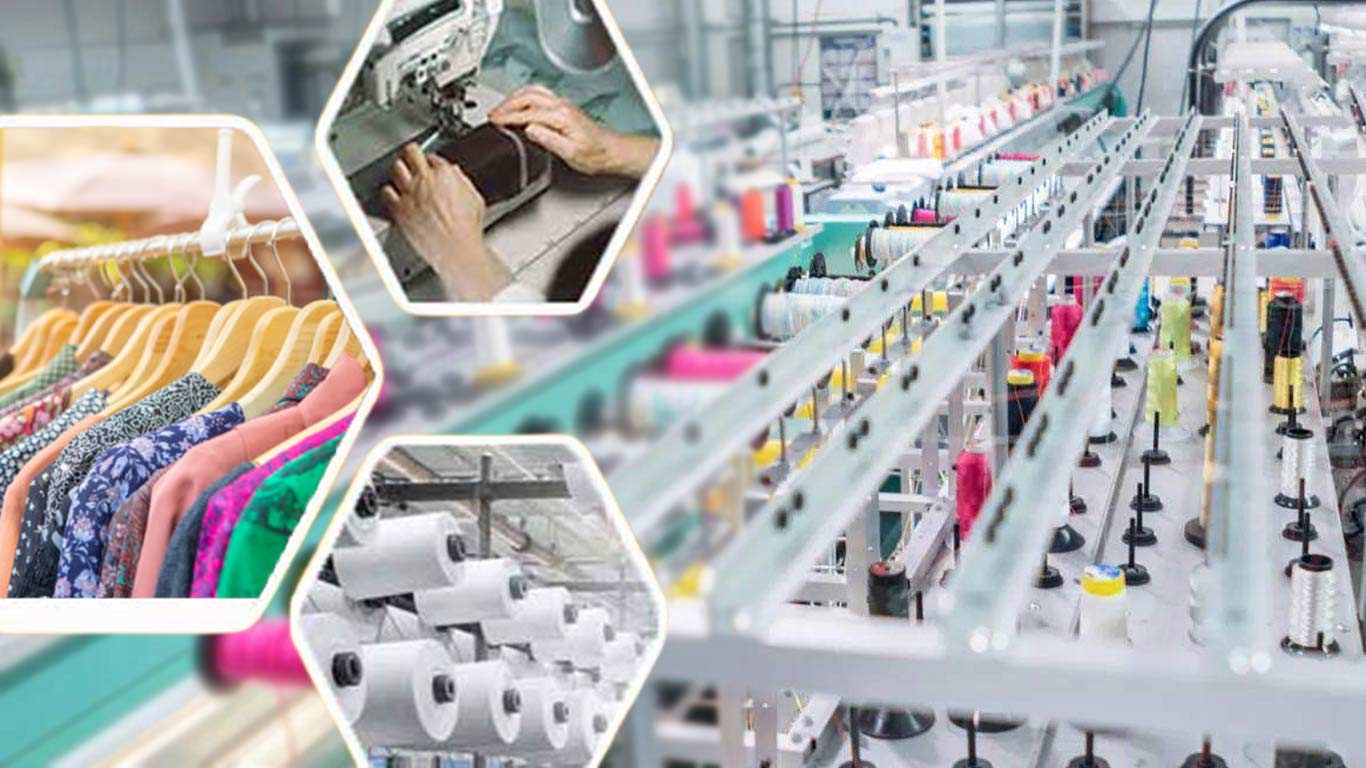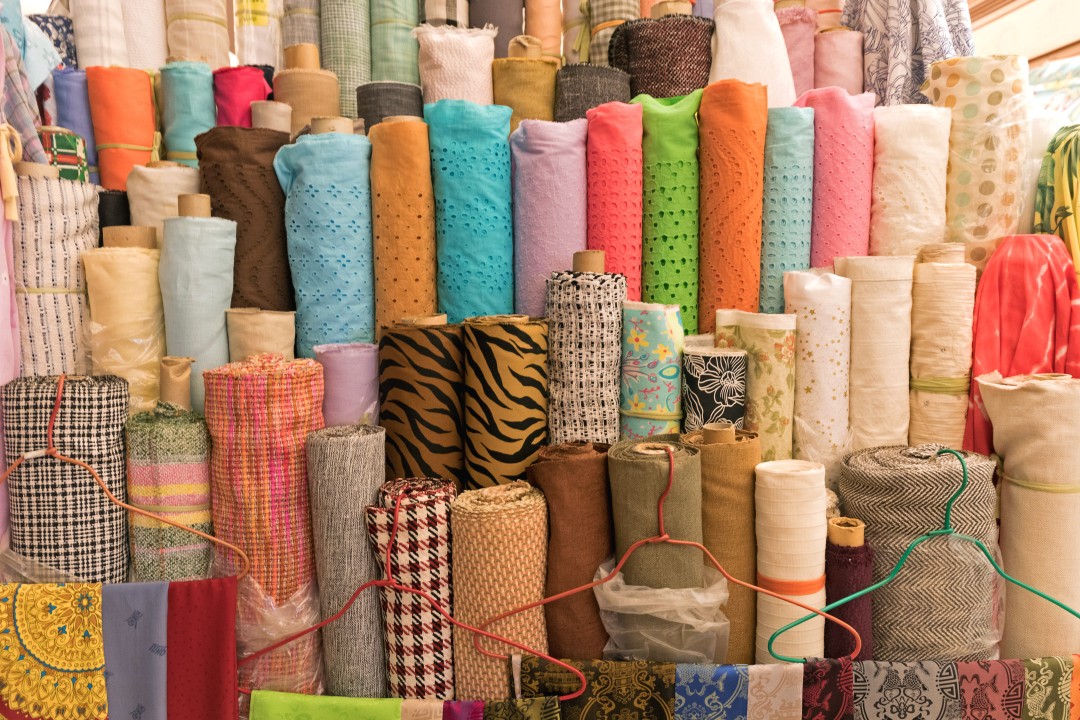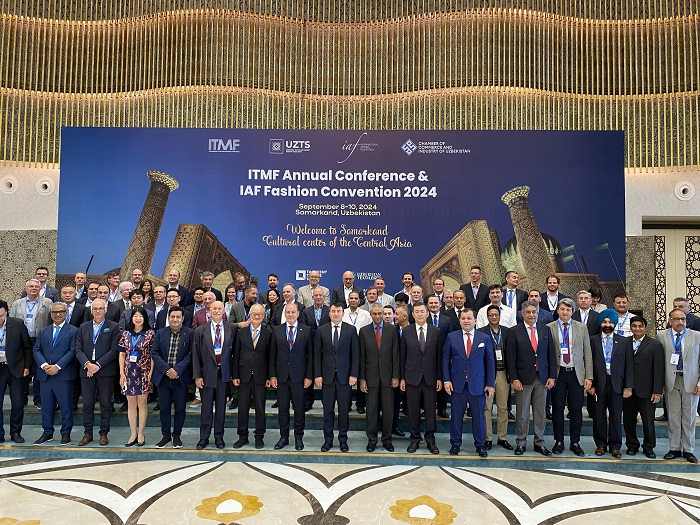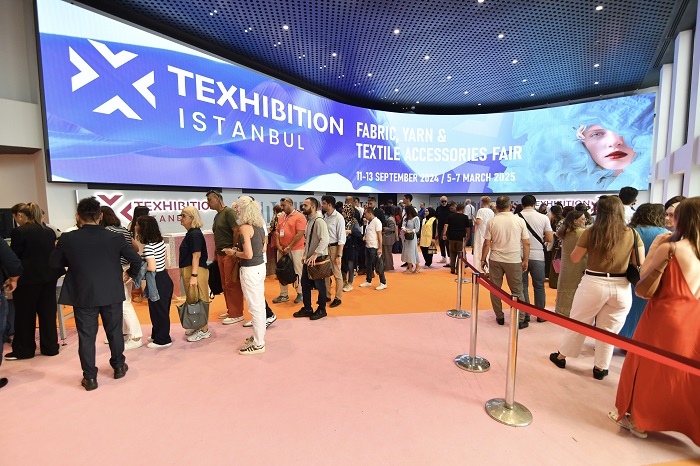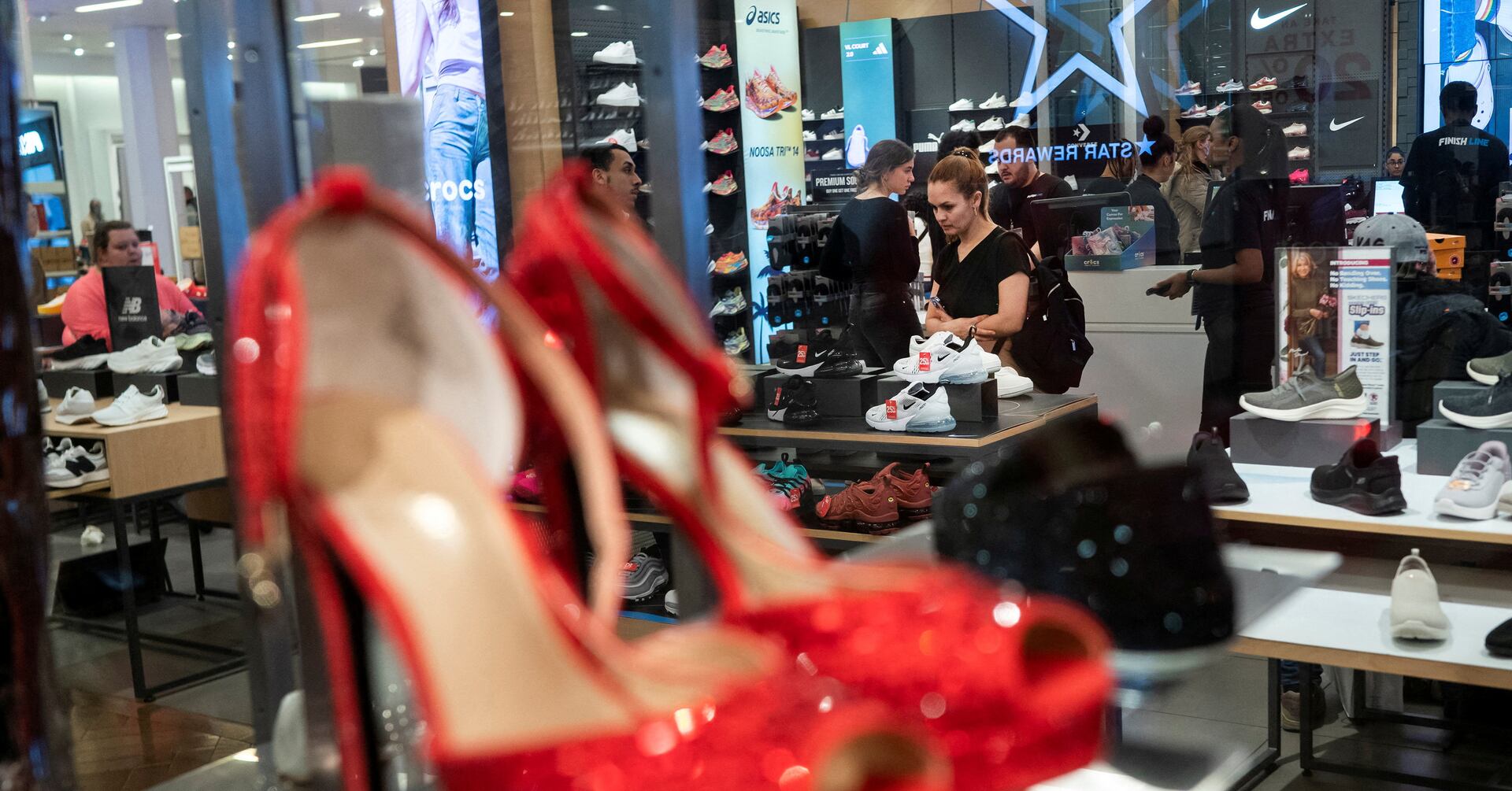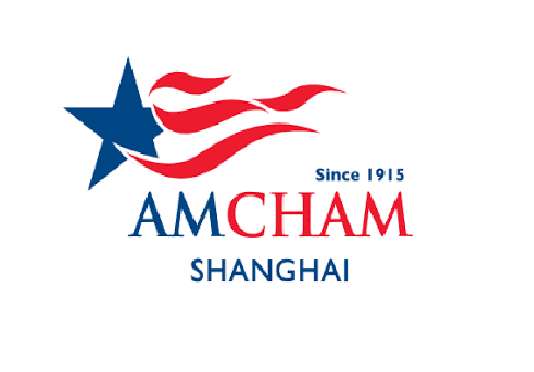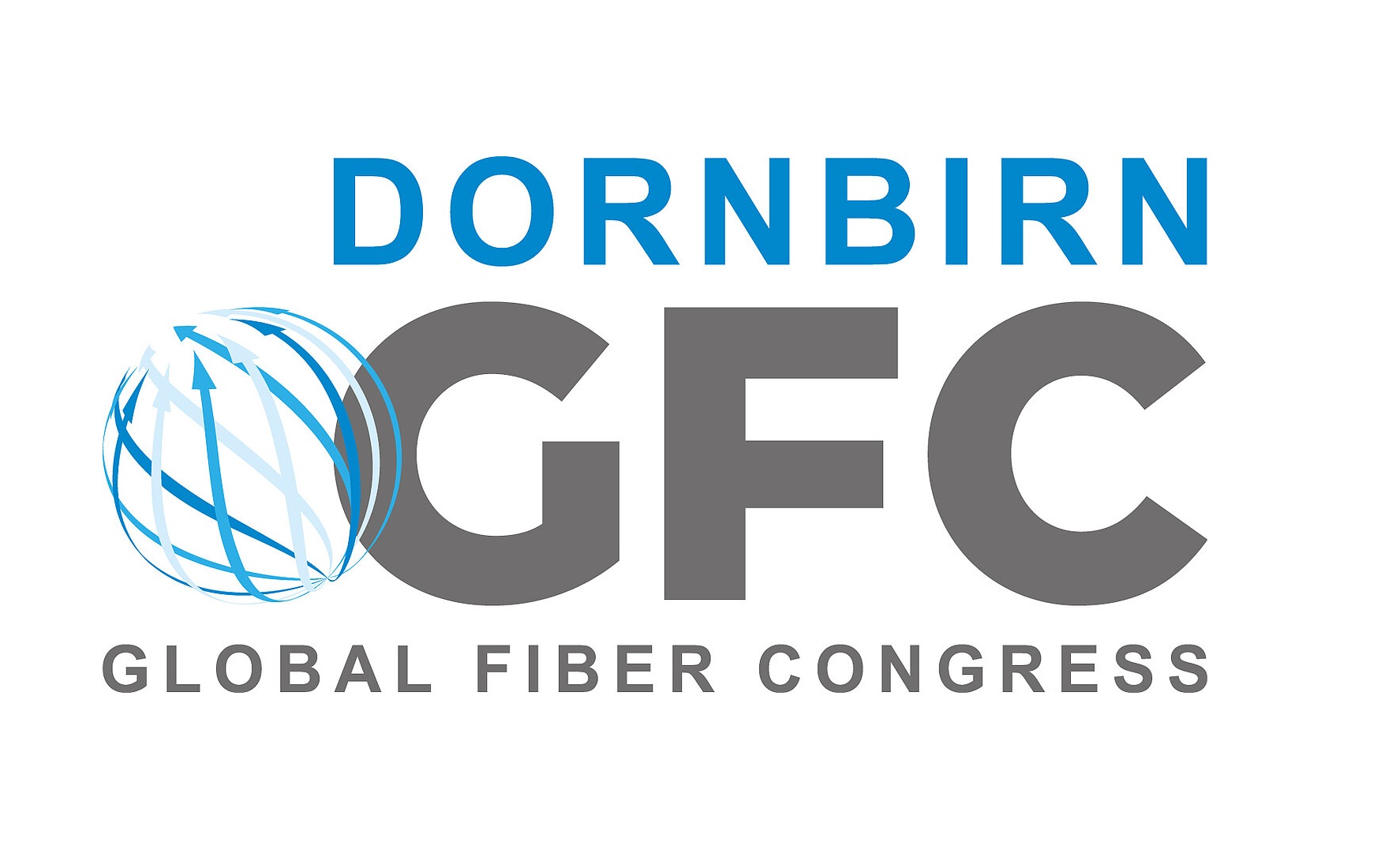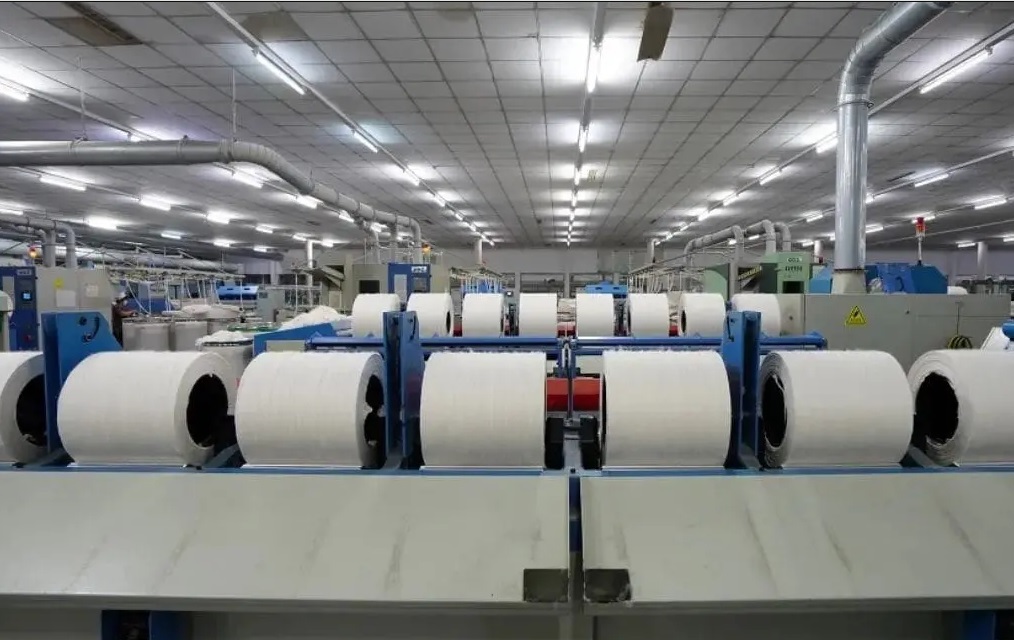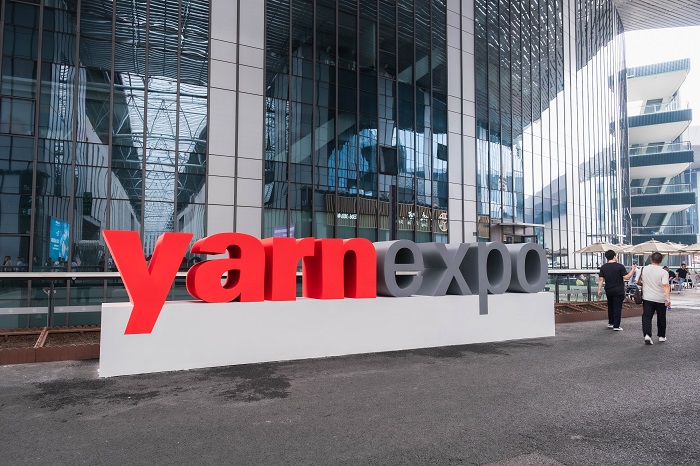FW
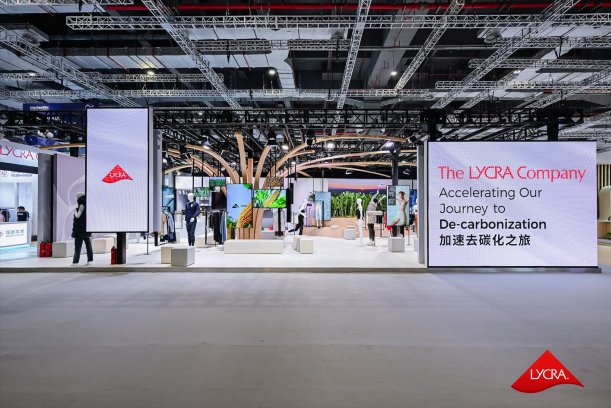
The Lycra Company, a global leader in spandex, made a strong impression at the recently concluded Intertextile Shanghai and Yarn Expo. The company showcased its commitment to sustainability by highlighting a range of innovative products, including bio-derived Lycra fibre made with Qira, the industry's first renewable spandex available at scale.
Qira, derived from annually grown field corn, is set to launch in the first half of 2025 and is expected to reduce the carbon footprint of Lycra fibre by up to 44% while maintaining the same performance as the original.
Other sustainable offerings included Lycra FiT400, a bicomponent fibre made with recycled PET and bio-derived resources, Coolmax EcoMade fiber from 100% textile waste, and Thermolite EcoMade fiber for lightweight warmth.
"We are excited to showcase our sustainable solutions at Intertextile," said Jason Wang, Lycra vice president for Asia. "These products will help our customers reduce their carbon footprint and achieve their sustainability goals."
In addition to its sustainable offerings, Lycra also highlighted its partnership with Regina Miracle, a leading garment maker from Hong Kong, to showcase samples made with Lycra Adaptiv, a product that enables inclusive sizing and provides a second-skin fit.
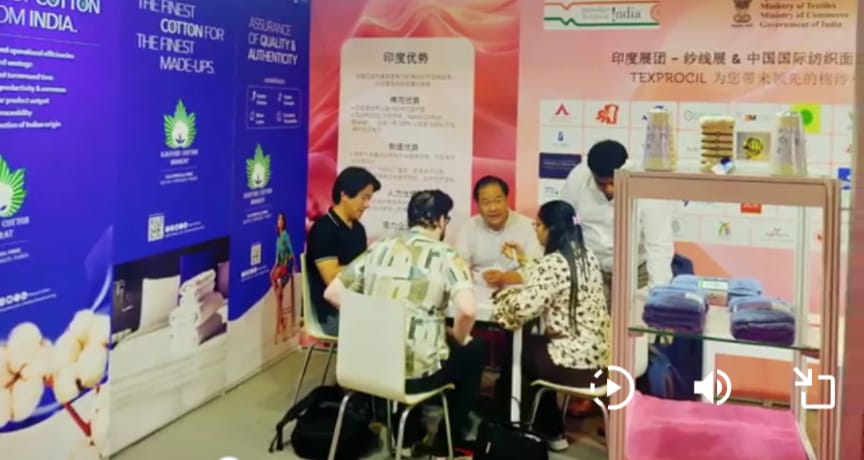
With its highest exhibitor number in 10 years, India's participation at the Yarn Expo Autumn 2024 was marked by the launch of a new initiative aimed at showcasing the country's finest cotton fabrics to the global market. Under the brand name Kasturi, the Cotton Textile Promotions Council of India (TEXROCIL) presented a curated collection of high-quality cotton fabrics, setting a new standard for Indian textiles.
The name "Kasturi" is inspired by the musk deer, a creature known for its fragrant scent. Much like the deer is unaware of its own aroma, the TEXROCIL believes that India's premium cotton fabrics have often been overlooked amidst the vast quantities exported. The initiative seeks to bring these exceptional textiles to the forefront of the international textile industry. By introducing the Kasturi brand, the country has taken a proactive step towards establishing itself as a leading exporter of premium cotton fibre, yarns and fabrics.
Explaining the concept behind the brand name, Murali Balkrishna, Joint Director, TEXPROCIL said, “We think Indian cotton fabrics are of very high quality have always been present in the large volumes of the fibre that India exports and we have launched this initiative to bring more attention to it. And as the initiative gains momentum, it is expected to further enhance India's reputation as a reliable and innovative textile supplier in the global market.”
49 Indian textile brands, at the recent Intertextile Shanghai and Yarn Expo exhibition, showcased their Kasturi-labelled yarns and fabrics, demonstrating the initiative's impact. The response from buyers and industry experts was overwhelmingly positive, highlighting the growing demand for sustainable and high-quality cotton products.
The Yarn Expo Autumn 2024 provided a significant platform for India to showcase its textile capabilities. Leading enterprises from across the country are showcasing, amongst other products, an extensive collection of traditional and eco-friendly cotton. The pavilion has Indo Industries, Padwa Worldwide, Texperts India, Niva Organics and other members exhibiting under the banner.
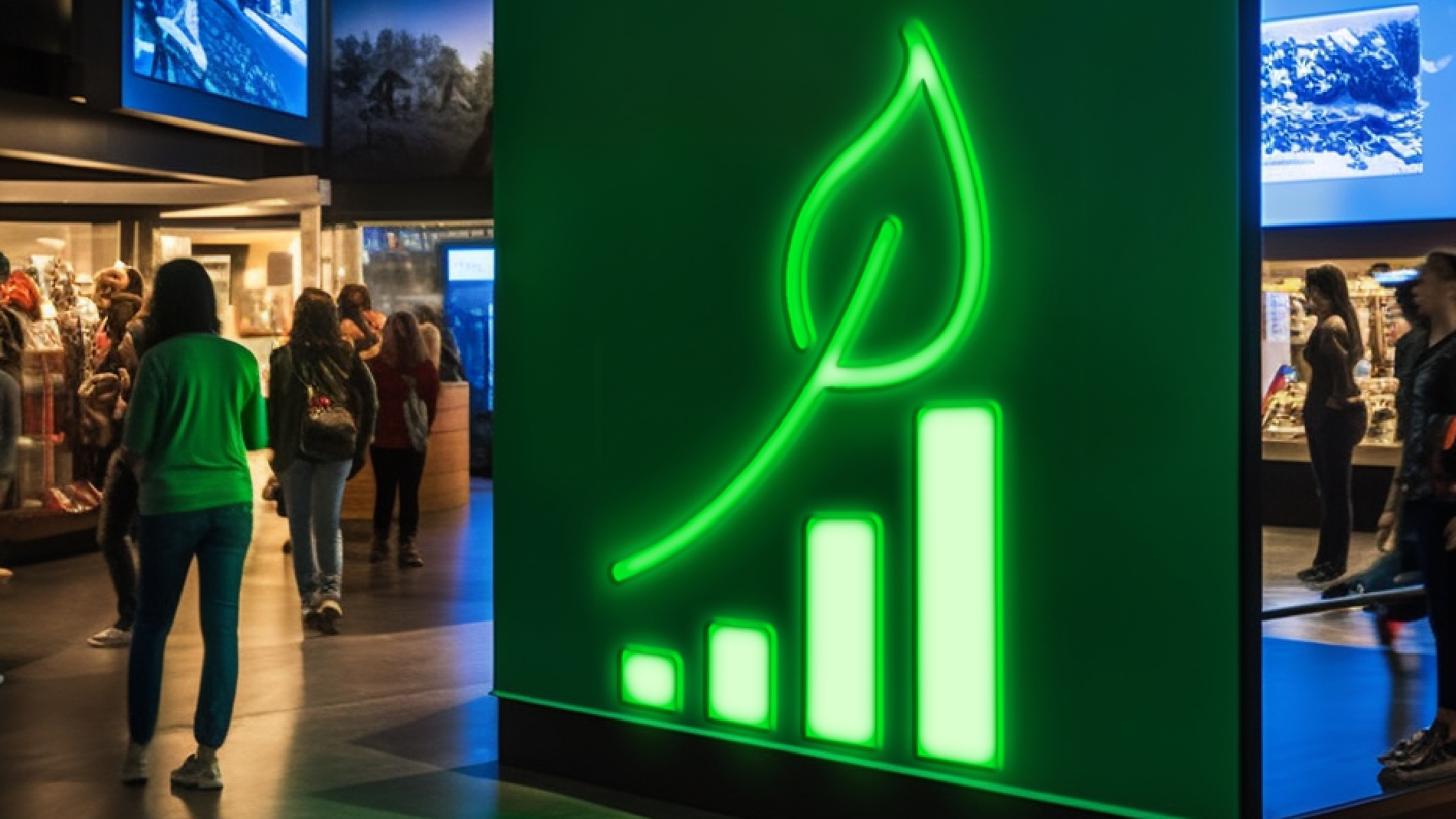
Messe Frankfurt has introduced a novel sustainability concept, ‘Econogy’, to the textile industry. The term is a combination of "ecology" and "economy," reflecting the initiative's focus on creating sustainable products that are also economically viable. The sustainability featured in Messe Frankfurt shows earlier in different formats including “All About Sustainability”, where as Econogy represents a more inclusive format.
Econogy represents a significant step forward in promoting sustainability within the textile industry. By combining ecological responsibility with economic viability, the initiative aims to create a more sustainable and resilient future for the sector.
The Concept
Econogy aims to highlight and promote sustainable practices within the textile industry. Messe Frankfurt believes that for a product to be truly sustainable, it must not only be environmentally friendly but also economically sound. The initiative encourages exhibitors to showcase sustainable elements of their collections, providing them with a platform to demonstrate their commitment to responsible production.
The Action Plan
Product Assessment: Exhibitors can submit their yarns and fabrics for evaluation to be included in the Econogy program. An independent panel assesses the products based on their sustainability criteria.
Logo Recognition: Successful products are awarded a distinctive logo, allowing exhibitors to visibly identify their sustainable offerings.
Industry Platform: Messe Frankfurt provides a platform for industry players to showcase their advancements in sustainability, fostering collaboration and knowledge sharing.
What Econogy Intends to Do
While Messe Frankfurt cannot directly make the textile industry more sustainable, the Econogy initiative aims to:
Increase Visibility: By highlighting sustainable products, Econogy helps to raise awareness of eco-friendly practices within the industry.
Promote Collaboration: The initiative can foster partnerships between industry players, encouraging the development of innovative sustainable solutions.
Drive Consumer Demand: By showcasing sustainable offerings, Econogy can contribute to a growing consumer demand for environmentally friendly products.
Explaining the concept, Olaf Schmidt , Vice President, Messe Frankfurt, for textile industry events, said, “Messe Frankfurt had been inviting exhibitors to highlight sustainable elements of their collections at its shows since 2008, but now we wanted to bring this range of initiatives under one umbrella, and have termed it Econogy. However, he emphasised, “We cannot make the textile industry more sustainable, it is for the industry to do that. But we can give the industry a platform for making its advances in sustainability more visible.”
Adding further he said, “For a product to be sustainable it has to have a good business case behind it. Exhibiting companies are able to apply to have yarns and fabrics assessed for inclusion in the Econogy programme, with an independent judging panel deciding which products qualify. If successful, exhibitors are able to display a new logo for the initiative on their stands.
Messe Frankfurt earlier launched the programme at Heimtextil, Frakfurt in January this year and followed this up at Texworld in Paris and New York. Its inclusion at Intertextile Shanghai marked its debut in China.
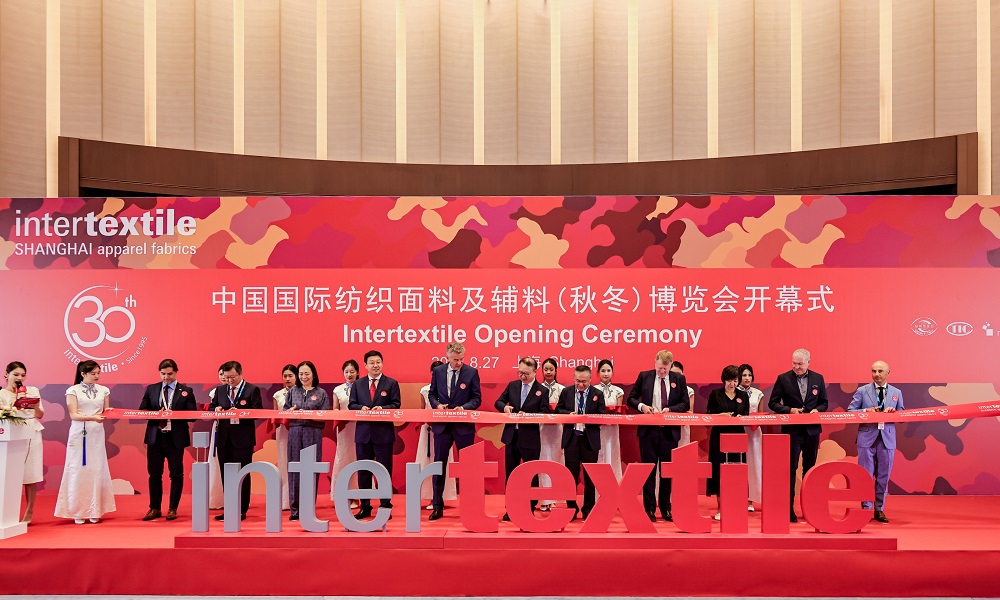
Intertextile Shanghai Apparel Fabrics celebrated its 30th anniversary with a spectacular inauguration event held on August 27th morning marking a significant milestone for the global textile industry. The grand event is being held at the National Exhibition and Convention Center in Shanghai during August 27-29, 2024.
Organized by Messe Frankfurt, the event is set to hold thousands of exhibitors and visitors from over 27 countries and regions, showcasing the latest trends, innovations, and sustainable practices in the global textile industry.
Speaking at the opening ceremony, Detlef Braun, a member of the executive board of Messe Frankfurt, reflected on the journey of Intertextile Shanghai. He noted that the first edition of the event in 1995 featured 123 exhibitors. However, the origins of the exhibition date back even further to 1987, when Messe Frankfurt launched its first overseas show, Interstoff Asia, in Hong Kong. “This was Messe Frankfurt’s first ever overseas show,” Braun said, “and it led to the launch of Intertextile Shanghai.”
Over the past 30 years, Intertextile Shanghai has grown significantly, with a total of 103,000 exhibitors and more than 2.4 million visitors. Braun emphasized the event's importance, stating, “It is one of Messe Frankfurt’s crown jewels and a major sourcing hub for the global textile industry. It is an incredible success story, and the best is still in front of us.”
Highlights of the 30th Anniversary event
The autumn edition of Intertextile Shanghai Apparel Fabrics is showcasing a variety of key highlights, focusing on global reach, sustainability, and innovation:
Global Reach: The event features a diverse range of exhibitors from over 27 countries and regions, highlighting a broad spectrum of products and services tailored to different markets.
Milano Unica returns
Milano Unica continues to play a prominent role, 43 Italian companies are participating in Milano Unica Shanghai with their offerings and varying experiences. While many companies have been selling textiles in China for years, others are new to this vast and complex market.
Sustainability Focus: Reflecting a growing demand for eco-friendly materials and production processes, a significant portion of the exhibition is dedicated to the sustainable textiles.
Innovative Technologies: Attendees will explore the latest advancements in textile technology, including digital printing, functional fabrics, and smart textiles.
Trend Forecasting: The event provides valuable insights into the key trends for the Autumn/Winter 2025 season, aiding designers and manufacturers in planning for the future.
Networking Opportunities: The exhibition serves as a vital platform for industry professionals to connect, collaborate, and build relationships.
Trends and innovations on display
Several notable trends are set to emerge during the event, emphasizing the evolving landscape of the textile industry:
Sustainability: Exhibitors are showcasing a strong commitment to sustainability through eco-friendly materials, certifications, and innovative production methods.
Functional Fabrics: There is a high demand for functional fabrics featuring properties such as moisture-wicking, temperature regulation, and UV protection, particularly in the sportswear and outdoor apparel sectors.
Digital Printing: The popularity of digital printing technology continues to rise, offering increased flexibility, customization, and a reduced environmental impact compared to traditional methods.
Smart Textiles: The integration of technology into textiles, such as wearable devices and sensor-embedded fabrics, represented a growing trend in the industry.
Intertextile Shanghai Apparel Fabrics continues to be a pivotal event for the textile industry. Its focus on sustainability, innovation, and global collaboration aligns with the changing landscape of the market.
As a part of its wider management overhaul to stem losses, Italian fashion retailer, Benetton Group has asked Andrea Incontri, Creative Director to quit from his position in the group.
With this move, the company aims to define a management team to support its new director general in a new phase of rationalisation and relaunch. The clothing group named Claudio Sforza as director general in late May to replace Massimo Renon, who had been publicly criticised by the company's 89-year-old founder Luciano Benetton for what he called a ‘100-million-euro hole; during his four years in charge.
Incontri was hired by Renon in July 2022 to rejuvenate the group's collection. He was previously the artistic director of Italian luxury shoe companyTod's from 2014 to 2019.
Created in 1965 in the northeast of Italy, the ‘United Colors of Benetton; went global in the 1980s with its soft wool sweaters and the shock advertising of photographer OllvieroToscani.
However, the company's sales have stagnated since the early 2000s with its net loss nearly tripling to €230 million in 2023.
Sales of US-based retailer specialising in apparel for big and tall men, Destination XL Group declined by10.9 per cent to $124.8 million in Q2, FY24 from $140 million in Q2 FY23. The company’s store sales fell by 10 per cent while its direct business decreased by 12.8 per cent.
Destination XL Group’s gross margin rate for Q2 FY24, including occupancy costs, also lowered by 48.2 per cent Y-o-Y during the quarter from 50.3 per cent in the same quarter last year. This 210-basis-point decrease in gross margin underscores the impact of reduced sales volume on the company's profitability.
The company’s Selling, general, and administrative (SG&A) expenses rose significantly as a percentage of sales, reaching 43 per cent in Q2 FY24, compared to 33.9 per cent in Q2 FY23. This increase was partly driven by higher marketing costs, which accounted for 8.8 per cent of sales in Q2 FY24, up from 5 per cent in the previous year.
Net income for the second quarter of FY24 declined to $2.4 million from $11.6 million from the same quarter last year. Adjusted EBITDA, a non-GAAP measure, also witnessed a significant drop at $6.5 million for Q2 FY24, compared to $22.9 million in Q2 FY23.
The company’s second-quarter results reflect the challenges of a tough retail apparel market, marked by a decline in foot traffic to its stores and lower conversion rates in direct business, says Harvey Kanter, President and CEO.
During the quarter, customers of the company continued to feel the effects of inflationary pressures and macroeconomic uncertainty on their discretionary spending. However, despite the disappointing sales performance, Destination XL Group maintained a stable merchandise margin, reduced inventory, and upheld a strong balance sheet, he adds.
The inaugural edition of the Genova Jeans Week, to be held from Oct 01-04, 2024 in Genova, Italy, will focus on fashion, sustainability, art, and edutainment.
Conceived by the City of Genoa, this new format of the event will transform it into a vibrant, multi-day celebration featuring workshops, conferences, exhibitions, art installations, and even a jeans-themed party.
Conceived by Manuela Arata, Chairperson, Advisory Board, the new format will expand the scope of the event, extending its duration and incorporating new locations throughout Genoa's historic center, alongside a more extensive lineup of events and partners.
The event will also provide an opportunity to delve into the origins of jeans, its historical connection to our city, and its evolution into a beloved garment embraced by people of all ages, says Deputy Mayor PietroPiciocchi. The event would also serve as a platform for businesses in the fashion and textile supply chain to exchange ideas, while also promoting urban and social revitalization in Genoa, he emphasises.
Featuring over 50 events focused on music, art, fashion, and craftsmanship, Genova Fashion Week will be based on the overarching theme of recycling and reusing textile materials. One of the highlights of this fashion Week will be the JeanLab on Via Pré, where artisans will host workshops on various applications of denim. The Darsena area will serve as the central hub, hosting the Jeans Village.
Additionally, the city will come alive with exhibitions and art installations in various locations, including the PalazzideiRolli, industrial spaces, the University Library’s Art Nouveau halls, and city museums.
The Customs and Monopolies Agency will host discussions with companies and entrepreneurs from the fashion and textile industry, focusing on sustainable, creative, and innovative production processes for denim garments. The agency’s headquarters will also feature the exhibition ‘The Jeans Backstage. Beyond Your Blue Jeans,’ showcasing the intricate work behind denim production, in collaboration with selected companies, start-ups, and young designers.
The Diocesan Museum will present a new Arte Jeans exhibition, featuring contemporary works created with Candiani Denim fabric. Additionally, a window display competition themed ‘Jeans is Forever’ will involve retailers, aiming to raise awareness about responsible consumption and the durability of denim.
The Autumn Fair, a leading seasonal event for Home, Gift, and Fashion retail, kicked off, attracting thousands of buyers eager to discover the latest products for their stores. Spanning four days, the show is crucial for UK independent retailers to refresh their inventory ahead of the festive season. Reports from the first day highlighted an optimistic atmosphere, with substantial order writing and the value of in-person interactions.
Prominent retailers and independent businesses, including Tesco, Poundland, Blue Diamond, and Roys of Wroxham, attended the event. Event Director Soraya Gadelrab expressed excitement about welcoming over 12,000 buyers to explore offerings from 800+ suppliers, noting the positive feedback from attendees.
On the show floor, exhibitors and buyers shared positive experiences. Jason Bensohn of One.World, returning after a pre-Covid hiatus, praised the opportunity to reconnect with old clients and attract new ones. Kerry Singh of Final Touches reported unexpected busyness and early orders. Paul Connett of My Gifts Trade launched new collections at the show, including exclusive European ranges, while Brett Smith of Emotional Rescue highlighted the networking benefits.
In the Moda section, Irene Harvey of Velvet & Cream and James Rowley of Sleek Boutique discovered new suppliers and products, emphasizing the importance of the event for finding unique items.
The Autumn Fair also featured a Merchandising Masterclass led by Debbie Flowerday, focusing on visual display techniques to enhance retail spaces. Attendees like Luke MacFadyen of Fig1 and Paula Hunault of XO-CU Ltd found the session insightful, gaining valuable tips for improving their store presentations.
With 38 per cent of exhibitors new to the show and 30 per cent exclusive, the Autumn Fair offers retailers access to innovative products, helping them stay ahead of trends. The event's unique offerings and new buyer attractions, such as the Ambience Clinic, further enriched the experience, making it a must-attend for the retail community.
The Confederation of Indian Textile Industry (CITI) has launched its first Management Development Program on Environmental, Social, and Governance (MDP-ESG) to address the growing sustainability mandates from global markets like the EU and evolving national regulations. The three-day event, held at the Bombay Textile Research Association (BTRA) in Mumbai, aimed to equip industry managers with essential knowledge for navigating this new landscape.
CITI Secretary General Chandrima Chatterjee and Chairman RakeshMehra led the program, highlighting the need for a holistic approach to sustainability that balances economic growth, social equity, and environmental protection. Mehra emphasized that the future of the textile industry hinges on integrating ESG principles into every aspect of production.This view was supported by Sunil Patwari and Siddhartha Rajagopalan of TEXPROCIL, who discussed industry adaptation to new demands.
The program featured technical sessions on environmental sustainability, human rights, and international standards. Day 1 focused on sustainable water management, chemical compliance, and life cycle assessment, with insights from experts like Bharti Birla of the International Labour Organization (ILO). On Day 2, discussions on Extended Producer Responsibility (EPR) and sustainability governance emphasized the importance of designing products with their entire lifecycle in mind.
The final day centered on the National Guidelines on Responsible Business Conduct (NGRBC) and Business Responsibility and Sustainability Reporting (BRSR). The event concluded with a Certificate Distribution Ceremony, where Textile Commissioner RoopRashi praised CITI’s efforts and called for simplifying ESG compliance processes, especially for MSMEs.
Buoyed by the program's success, CITI is planning a follow-up session in Bangalore, reinforcing its commitment to steering the textile industry towards a sustainable future.
The halt in new orders by western clothing and footwear companies to the violence-hit Bangladesh has significant implications for the Indian textile industry, which supplies raw materials and other inputs to Bangladesh.
According to industry insiders, while India continues to receive more inquiries for clothing, its cotton shipments to Bangladesh are on a decline. M. Rafeeque Ahmed, Chairman, Chennai-based Farida Group, confirms, there are no new orders from Western companies. The workers and the administration are working overtime to complete pending orders. Some items are being sourced from India to fulfill the orders, along with technicians also being hired from India.
Much of Bangladesh's production is concentrated in Chittagong and Dhaka, areas that are relatively distant from the protest sites, highlights Ahmed.Though there were some disruptions in August, western orders are expected to resume soon, he adds citing Bangladesh’s favorable duty climate as a least developed country (LDC).
ChandrimaChatterjee, Secretary General, Confederation of Indian Textile Industry (CITI), notes,Western companies consider India as an alternative sourcing destination. However, its capacity to deliver currently faces qualitative and quantitative mismatches between Indian and Bangladeshi product offerings,she adds.
Although there are inquiries for clothing from India, the reduction in raw material exports to Bangladesh has impacted the Indian textile industry negatively, Chatterjee points out. However, initiatives like the PM Mitra and PLI schemes will continue to strengthen India's textile sector, she affirms.

